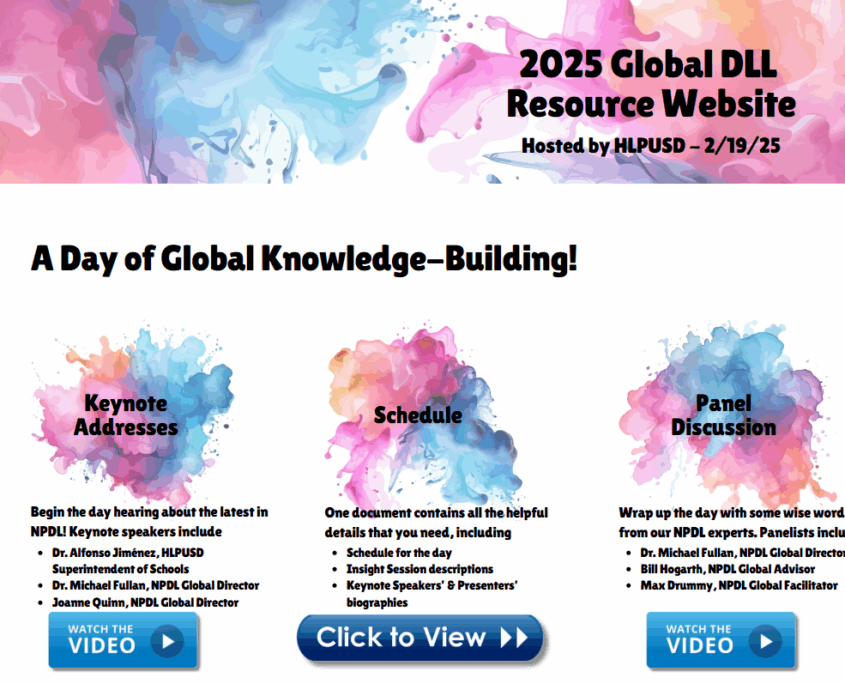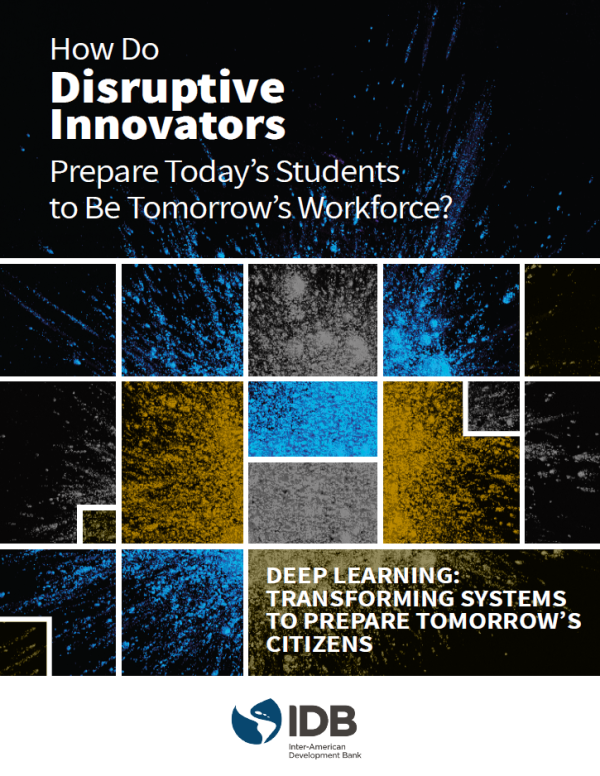Who is involved
We are joined by families, teachers, school leaders and policy makers worldwide who are seeking ways to transform pedagogies and provide the conditions that will facilitate deep learning.
To foster deep learning so that all learners contribute to the common good, address global challenges and flourish in a complex world.
We are joined by families, teachers, school leaders and policy makers worldwide who are seeking ways to transform pedagogies and provide the conditions that will facilitate deep learning.
We work alongside educators to change the role of teachers to that of activators of learning who design learning experiences that build on learner strengths and needs, create new knowledge using real-life problem solving and help all students identify their talents, purpose and passion.
We are partnering with over 1800 schools in 20 countries. We work with clusters and networks of schools to build knowledge and practices that develop deep learning and foster whole system change.
We believe every student deserves to learn deeply and to support whole systems to transform learning — schools, provinces, states and countries to want to take action, make a positive impact and grasp opportunities that will lead to success in life.

New Publications:
A “Big Tent” Strategy for System-Wide Transformation: Seeking Deep Learning in Ottawa.
Authored by Sarah Fine and Jal Mehta, this paper presents A Promising Proof Point for System-Wide Change based critically around Deep Learning. It explores real stories of sustained shift in Learning, Teaching and Leadership, driven by a relentless focus on creating the conditions for all learners to develop the Six Global Competencies of Character, Citizenship, Collaboration, Communication, Creativity and Critical Thinking.
Our Deep Thanks to Ottawa Catholic School Board for generous access to the people, across the system, who contributed to this research.
Michael Fullan’s Six Reasons to be Optimistic About Learning in 2022
“I have a hypothesis about humans. When things go blatantly bad and prolonged as such, humans especially the young are itching to do something about it. What they need are good ideas, and no nonsense collaborators. They need to experience initial success and see clearly the potential of the new social movement for change that their cause represents. The 6 reasons for being optimistic enacted together, can enable the best to become full of passionate intensity.” – Michael Fullan
Webinar Recorning now available
Activate Deep Learning and Lift from Loss
We are all different now.
By necessity, school has also changed. Quite simply, there is no going back.
We must seize this unique moment to activate the students’ innate desire to connect and be curious through authentic deep learning. Not only will this re-engage them in school but it will also accelerate the learning, as motivation and engagement combine to lift them from learning loss.
NPDL Members-Only Access:
Engage Secondary Students Because the Future Depends on it.
As secondary educators we must prepare students now for the uncertainties of tomorrow. In a decade, the students you are teaching today will be charged with the massive responsibility of tackling the world’s most prickly problems. Memorized math formulae and rehearsed soliloquies won’t get us out of the fix we are in. We need to engage our students differently because the future depends on it.
If you want to engage secondary students and prepare them for tomorrow, here are 12 provocations to put you on a Deep Learning path.
Celebrating 10 years since the release of Michael Fullan’s first “drivers” paper, CSE and Michael again collaborate to explore The right drivers for whole system success.
This paper is intended to provide a comprehensive solution to what ails the current public school system and its place in societal development – a system that is failing badly in the face of ever complex fundamental challenges to our survival, let alone our thriving as a species. What follows is a ‘big’ proposal. Once started the ‘four drivers’ feed on each other as a system in motion. Most important, the timing is right.
Hear Anthony Mackay and Michael Fullan discuss the paper below or on our YouTube channel
Defy Pandemic Gravity:
How to Jumpstart Deep Learning in your School
It’s been a long haul. Your school staff is exhausted and demoralized. The Pandemic
has been a whopping distraction from the focus on student learning. As restrictions
ease, school teams want to return to its focus on Deep Learning. For many teams, the
question is: how best to begin again? This short paper provides seven considerations
for reviving Deep Learning in schools.
Webinar recording now available below.
We are delighted to partner with Microsoft Education on the newly released position paper, Education Reimagined: The Future of Learning.
The paper presents a model to support schools and systems as they move from rapid response, through to remote-learning and then forward planning for re-opening and a new paradigm for education, one that brings the best of approaches forward.
It contains useful tools, models, conversation frameworks and guidance to contribute to the outstanding work educators are already doing.
A full list of Supporting Tools and Resources for the paper and accompanying webinars (NPDL members only) can be accessed here.
Comprehensive Operational Considerations for Leaders:
Reopening Schools Tool:
The Reopening Schools Tool will assist you to build a reopening plan tailored to your specific context. The prompts will guide you to assess structures, processes, and policies to design a comprehensive and flexible plan that deals with the safety and operational issues and ensures that learning, equity and well-being are addressed.
As systems prepare for reopening, we recommend that school and district groups engage in a reflective process to identify strengths, needs and system gaps. This will allow them to design structures, processes, and policies to support learning and the community they serve.
This five-point brief outlines how the New Pedagogies for Deep Learning Framework comprehensively address the key components of well-being.
 system reform in LATAM and the Caribbean.
system reform in LATAM and the Caribbean.Disruptive innovators take advantage of unique opportunities. Prior to COVID-19 progress in Latin America and the Caribbean for integrating technology, learning, and system change has been exceedingly slow. In this paper we first offer a general framework for transforming education.
The framework focuses on the provision of technology, innovative ideas in learning and well-being, and what we call ‘systemness’ which are favorable change factors at the local, middle/regional, and policy levels.
DOWNLOAD THE PAPER IN ENGLISH IN SPANISH
Webinar Recording and tools available now
Michael Fullan shares the essence of deep learning, and why it can be a catalyst for change. Michael talks us through engagement, Global Competencies and conditions that support and enable change.
Webinar Recording and tools available now
In these brief videos, Child Psychiatrist and NPDL advisor, Jean Clinton, explores well-being issues that address these challenging times.
Our Blog, NPDLConnect is designed to NAME our intentions, CONNECT educators, NOURISH deep thinking and learning and ILLUMINATE best practice.
In this series of short articles, we explore learning on the home front. We focus on how children of all ages can engage in deep learning and share how educators are facilitating learning with their own children.

Homespun wisdom, weaving innovation, insight and experience together. Check out what we’re learning.
The Deep Learning Competencies, better known as the 6 C’s, are the skill sets each and every student needs to achieve and excel in, in order to flourish in today’s complex world. These competencies form the foundation for the New Measures and NPDL teachers use the Deep Learning Progressions to assess students’ current levels in each of the six Deep Learning Competencies. They combine this with information about student achievement, interests, and aspirations to get a clear understanding of what each student needs to learn.